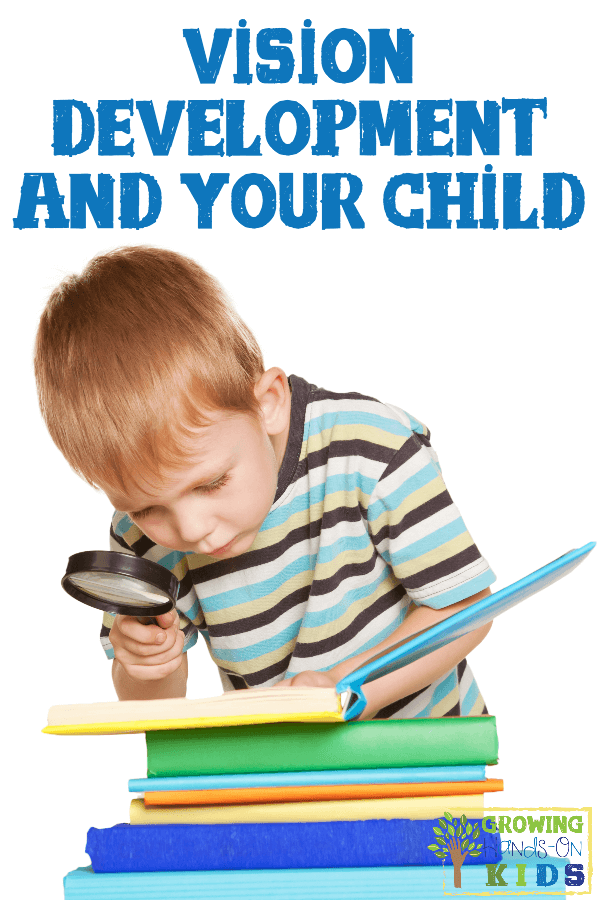Vision Development in Your Child
Affiliate and Referral links are used below to promote products I love and recommend. I receive a commission on any purchases made through these links. Please see my disclosure policy for more details. As an Amazon Associate, I earn from qualifying purchases.
I want to talk today about vision development in your child. We'll also take a look at how watching tv or playing video games at a young age affects your child's learning and behavior.
Children watch more tv and play more video games than in any other time period. Unfortunately, a lot of parent's don't realize the developmental affects this has on your child's vision and learning.
Did you know that babies are not born with 20/20 vision? For the first 6-8 weeks, their vision does not focus well and depth perception is just beginning to develop. At this age, it is important to change the baby's position often in the crib and during feedings. Provide brightly colored toys that make noise and play peek-a-boo and patty cake and avoid tv. (Resource: Vision First Foundation)
Vision Development Stages and Tips
From 6-12 months babies start to use their hands and feet to explore their environment as well as using both of their eyes together. At this age, it is important to encourage the baby to crawl. (See my post on crawling for more developmental information). Provide a lot of stacking and take apart toys to encourage visual development. Avoid tv. (Resource: Vision First Foundation)
At ages 1-3, eye-hand coordination and depth perception have developed. Provide lots of exploration through the zoo, playground, pool, or water park. Choose your toys carefully, provide blocks, toys that move by pushing the feet, and safe areas for them to scribble, finger paint etc. Avoid tv, video games and computer time.
In the preschool years (age 3+) your child is learning how to use vision for learning experiences. Continue to provide many different environments, such as the zoo, water park, pool, playground. Encourage them to climb, jump, and walk on balance beams. Read to your child daily and discuss the book after. Avoid or strictly limit tv, video games, and computer time. (Resource: Vision First Foundation)
In the school-age years (k-12) limited tv, video game and computer time are still important. Children should be encouraged to read at least 20 minutes a day and encourage active and creative play outdoors.
In all these stages it is important to have your child's eyes checked regularly by an optometrist. One in four children have eye problems, so catching it early is key. (Resource: Vision First Foundation)
Here's a great guest post written by a fellow OT on how they are limiting screen time with their children ages 2 and under.
Also, learn how screen time and sleep affect your child's behavior.
Resources:
Vision First Foundation
TV, or Not TV, is that the question? – Sidney Groffman, OD, FCOVD
Baby Development
Even Good TV is Bad for Kids – Deborah Hage MSW
You May Also Like:

Heather Greutman, COTA
Heather Greutman is a Certified Occupational Therapy Assistant with experience in school-based OT services for preschool through high school. She uses her background to share child development tips, tools, and strategies for parents, educators, and therapists. She is the author of many ebooks including The Basics of Fine Motor Skills, and Basics of Pre-Writing Skills, and co-author of Sensory Processing Explained: A Handbook for Parents and Educators.


